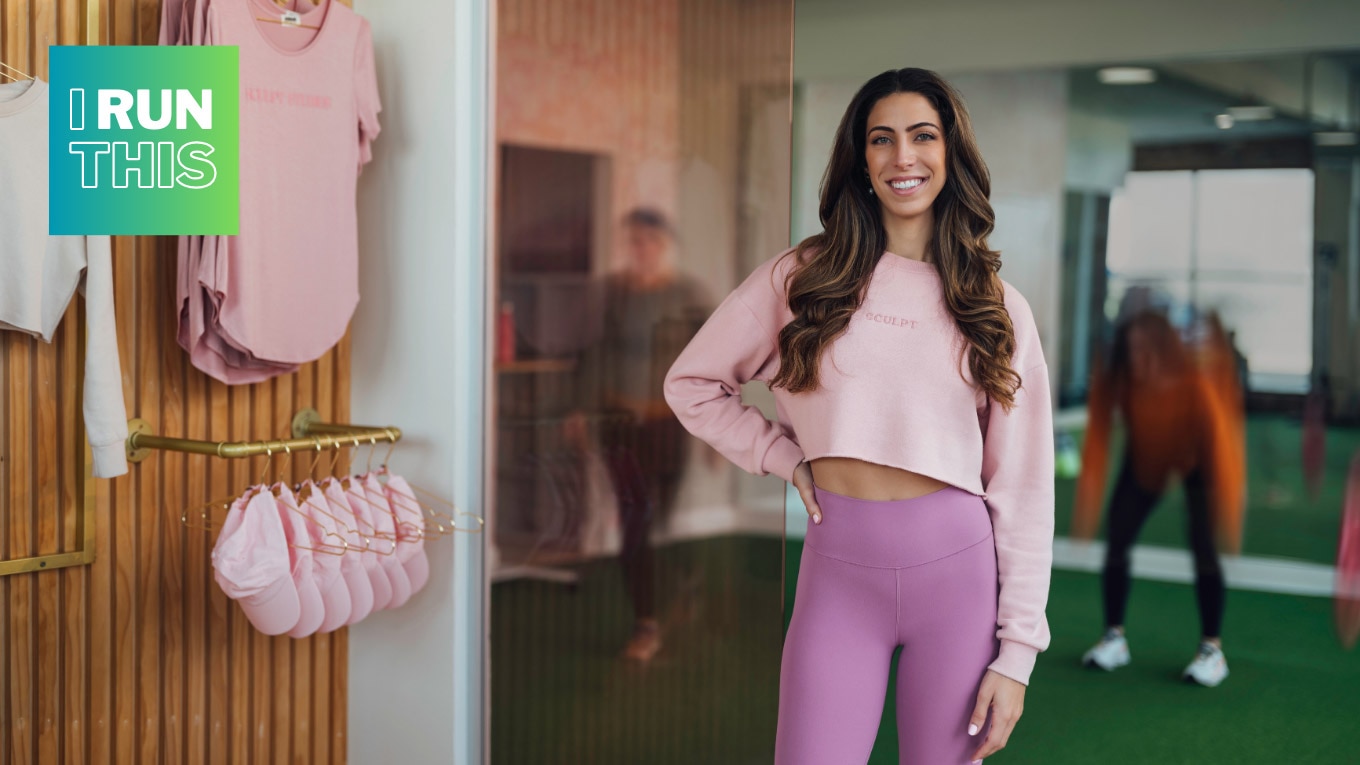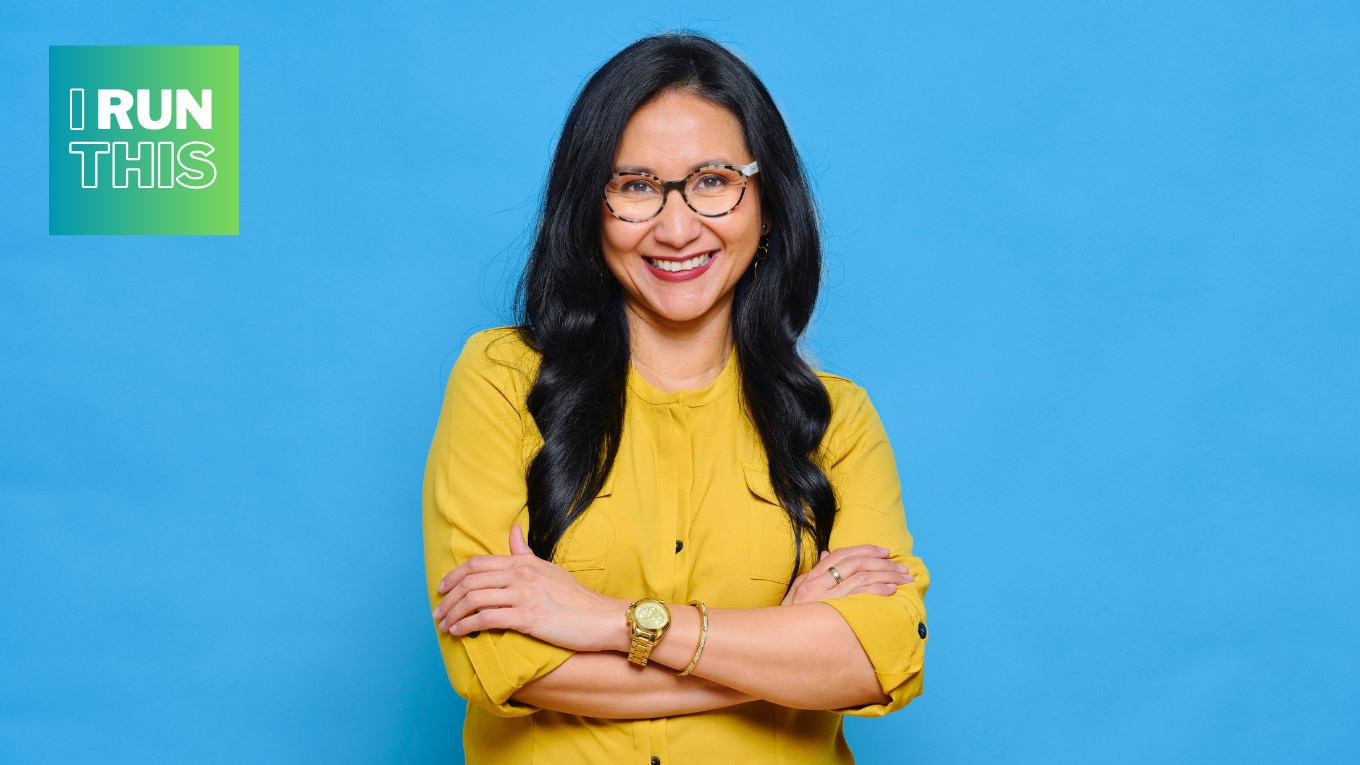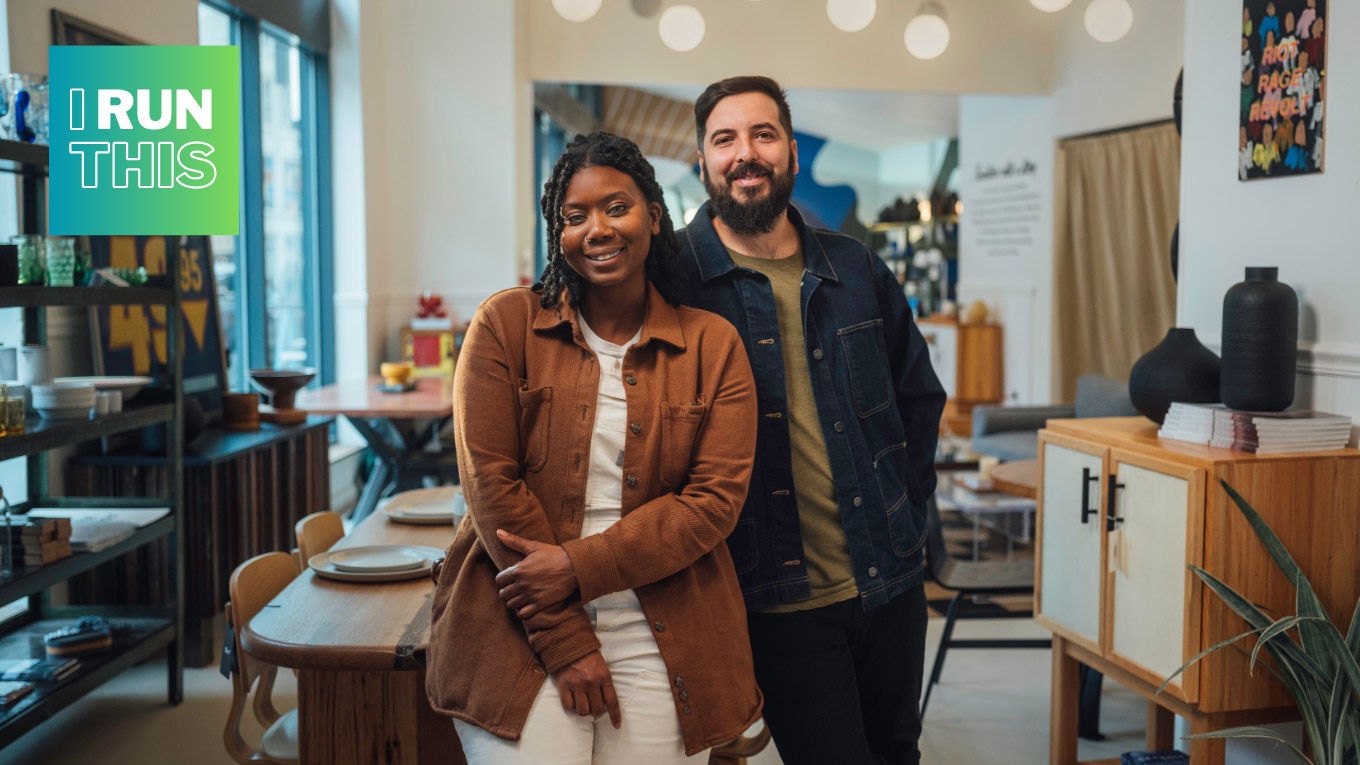
Nicole Nahed is getting stronger every day

Tell us a little bit about your business.
We're an all female personal and small group training space. The studio was created to be a safe space for women to be able to work on a lot of elements that go into their fitness goals, whether it be the mental blocks they have, the challenges they've had with body image in the past, and understanding the education behind fitness and nutrition. And so the studio has been a really unique space, actually more unique than I expected it to be when I opened it because it's given women a space to open up in a way that allows them to get the support they actually need to get to their fitness goal. So we've become this really inclusive, all-encompassing fitness studio that's really, really unique for women. Just a really safe space for every type of woman to come into.
What made you decide to start this business?
Sculpt Studios has been open for about a year, but it was a concept that I had been working on for almost two and a half years without even realizing it. When I was 15 years old, I got badly injured playing sports. I shattered my ankle and had to get two reconstructive surgeries and couldn't walk for almost a year and a half. So when the cast came off, I had to relearn every basic skill like walking and running. It was almost five years of recovery. Through that time, I did a lot of physical therapy and got really aware of how the body works.
Eventually I started to teach classes on the side…I would just incorporate it on the side of my corporate job. When COVID hit, I had some free time and I decided to start playing around with free classes — no intention of opening a studio — just Zoom classes here and there or park classes, and they started to grow on social media. People started to reach out to me and slowly I started to get really passionate about it. I expanded my space because we couldn’t fit anymore. I was renting a small little space from another personal trainer, and then I was like, “It's time to open our own studio.” And so that's when I jumped in and opened Sculpt.
How does running your own business make you feel?
It's a crazy day every day. There are so many mixed emotions of excitement, urgency, and sheer panic all at the same time. It is so much fun to run your own business. Every day is a very different day. I don't have set working hours. It's super exciting when something really works. It's like an experiment every day and it's also a lot more stress than I've ever had, but it's exciting stress.
What tools are you using to help you run your business?
I started using QuickBooks right away, actually. I don't even know what made me think to use it, but I remember when I had almost no clients and I was making almost no money, I still thought: “I need to organize the finances.” I don't even know how I would run my business without QuickBooks. I feel like in business you need to be super organized with your finances and you need a system that makes it almost like dummy proof. I feel like QuickBooks just organizes things. I like organization. QuickBooks organizes everything that you're spending so you can quickly find the buckets that you need to plug-and-play with to support the business.
So when I'm looking at my P&L, I'm looking at trends, I'm looking at where I'm spending more, where I'm spending less, and how it's affecting business growth. So QuickBooks is just my place to organize and spit those numbers out efficiently. Even with taxes, sending tax documents, having everything organized. For me, that's what I need. I need to quickly see what's going on, even if I don't understand every detail of it.
I also have some contractors who work on the team as trainers. When I first started bringing some support into the business, I had no idea how to do payroll. I'd never done payroll before. I didn't even understand what that meant, the implications on taxes, how you literally send people money — very simple things. So when I first started bringing on support, I used QuickBooks to pay people and it made a huge difference for me. Everything was organized. You can't use Venmo, you can't use your bank. It's really different.
What's something that you needed to teach yourself about running a business?
There's so many things. A really big thing I had to teach myself was how to do a lot of things in a small amount of time. I've worked in corporate jobs before, and those are challenging too, but you usually have someone to guide you. If you need help, there's someone to help you. When I first opened my business, I went to YouTube for a million things because I realized I had to learn how to wear every single hat in the business really quickly. The trainer, the finance person, HR, payroll, marketing, every single thing. So learning how to manage my time and figure out what was the most effective use of my time to grow was something that I spent a lot of time learning and researching.
How do you manage to wear every hat your business requires?
I don't know. Do I? I'm just kidding. No, it's definitely gotten a lot better. So I think systems and processes. A business is just a strong makeup of systems and processes. The best businesses have the best systems in place with a personal touch. My business background gave me a few things that were really amazing, including working in a corporate environment before this. It showed me that big businesses grow for a reason and it's because they can organize well and get people behind the vision. So I started having systems for everything. I wrote down what I did. I had processes, I had templates. I had a lot of things that could take out a lot of the work out of a lot of things quickly. And I treated myself like a big business very quickly. Even though I was so small, I treated myself like a big business. I probably had two clients, but I got an app to schedule people. I had a billing service, I had QuickBooks. I had all of these professional services that I probably wouldn't have needed for a while, but I knew that would professionalize the business, let's say, and that's how I saved a lot of time.
It's still definitely not enough time. But if you don't organize quickly, you cannot grow. You can't grow if you don't have a system where clients can schedule themselves or purchase things online. You have a billing system, a credit card system, all these things. So I think that at least helped me not mess up on things that were the cornerstone of a healthy business.
What are some of the most gratifying things about running a business?
There's been two things. One of them was just doing it. I didn't know that it was ever possible for me to do it. I didn't realize what it meant to own a business. I'd never known an entrepreneur before. I just remember everything about the process was so taxing. I had to really believe in myself. I had to really have so much confidence in myself, which is really hard to have sometimes when things beat you down. And I had to have that all the time. So I think when I started to see the milestones of the business, clients getting really good results, people wanting to come train with us, the business actually getting a permit from the city to open our doors the first day — those were moments I cried. I was just like, “I can't believe it's happening, it doesn't feel real.”
And our one year anniversary was the other. We hit a goal that I had set when we first opened the business. I said, "If we get to this goal, we're a successful business." And we actually hit it the month of our one year anniversary. So it's just been gratifying to realize something I had in me. When I was in business school — business school is very stressful and you can very easily feel inadequate in a competitive business school. And I never knew if I had what it took. It's very easy for people around you to beat you down a little bit with the competitiveness. And this has made me so confident that I do have something special, even if I didn't fit in business school. It was a real life differentiator from going to a school where everybody is perfect on paper to going out and being yourself in the world.
What does success mean to you? And has that version of success changed from the time that you opened to where you are now?
It has changed a lot. I think before…I don't think I really understood it so much before. A lot of times in life you have markers of success that have just been given to you — you're going to go to school, you're going to get a job. Those are your success markers. When I opened my business, I didn't have a marker to use as a success. So I think when I first opened, success was getting through day by day. It was literally just getting through a day of the business.
As I've grown, now I'm facing a lot of different growing pains. We're a lot bigger and we've grown kind of fast. So now success for me is more about the experience people have, whether they work for me or they’re clients. Is this business, as we grow, are we maintaining the experience that people had when it was just a really small business? If people still like, “I love it, I'm so happy. I feel so comfortable here. I'm making progress.” Or if the trainers are telling me “I love coming to work every day, this space feels so amazing.” To me, that is success. So just creating that environment.
And on the personal side, it's having an actually good personal life with balance in a business, which is really hard to do. And that's been my new thing that I'm very focused on as I grow. How do I have a life that I want while meeting the demands of a business?
What are some ways that you’re working on that balance?
I go to therapy a lot. I love therapy. That helps me a lot. I have gotten a lot better about maintaining boundaries. Boundaries become really important. I didn't have the option to have boundaries before. Before, I had to work a lot more. It wasn't a choice. Now I can have some stronger boundaries. So stopping work after eight or nine hours, not working on weekend days, planning more social events. So the demands are still there, but I've learned how to calm down the urgency of the business and create those boundaries.
What advice would you give to new business owners?
One thing I would've told myself is to take better care of myself throughout the process of this. I think it's hard to say that because it's almost impossible — you have to throw yourself into the business one hundred percent. You don't really have an option to take off the Saturdays and Sundays that other people do when your business is just starting. But I think if I could go back, I would've told myself, “prioritize yourself a little bit more because it's going to take a long time and it's okay if it takes two years and not one year. Or five years, not three years. You're still going to get there.” That's one thing I wish I had understood a little bit better. Just to take care of myself.
And then the other thing is, you're not supposed to know how everything works. You are going to make mistakes and you just have to be okay with that. You can only know when you do it. No one can tell you how to do it. It's not going to work when they tell you. You should learn from people, research things, and then you have to try it. So it's okay to make mistakes, because you're going to have to to become successful with it.
What's next for Sculpt Studios?
I want to grow the studio quite a bit. There's still some room to grow in this space, but I think that the world needs more Sculpt Studios. I didn't realize how needed it was for women until it opened. I knew it was cool. I didn't realize it was needed. So I think if I have the capacity, I would like to expand into more locations and reach more women.
How do you think that you do business differently? What sets you apart?
When I was growing up, everyone always told me business is business. I remember everybody — especially men — “Business is business.” And I just didn't believe that. I was just like, no, it's not. It's personal. Business is so personal. So I think I made it really personal for a lot of people. When I was first opening and I had a lot of clients, I took a lot of the business out of it. Even though the transaction is there — there's a financial transaction and there's a value that they're receiving. But I made it so much about relationships in the beginning, and I feel like that continually comes back to help us.












